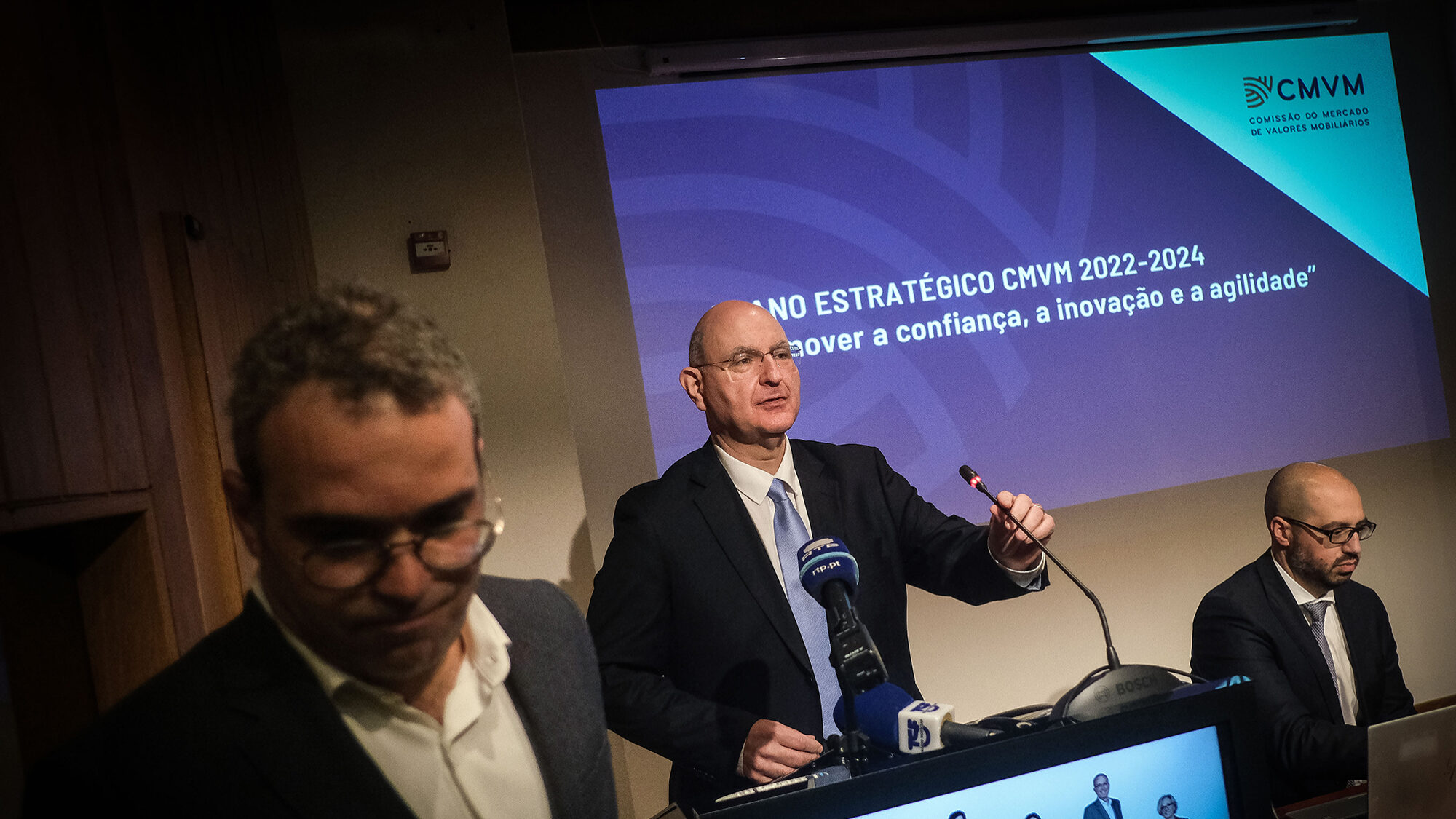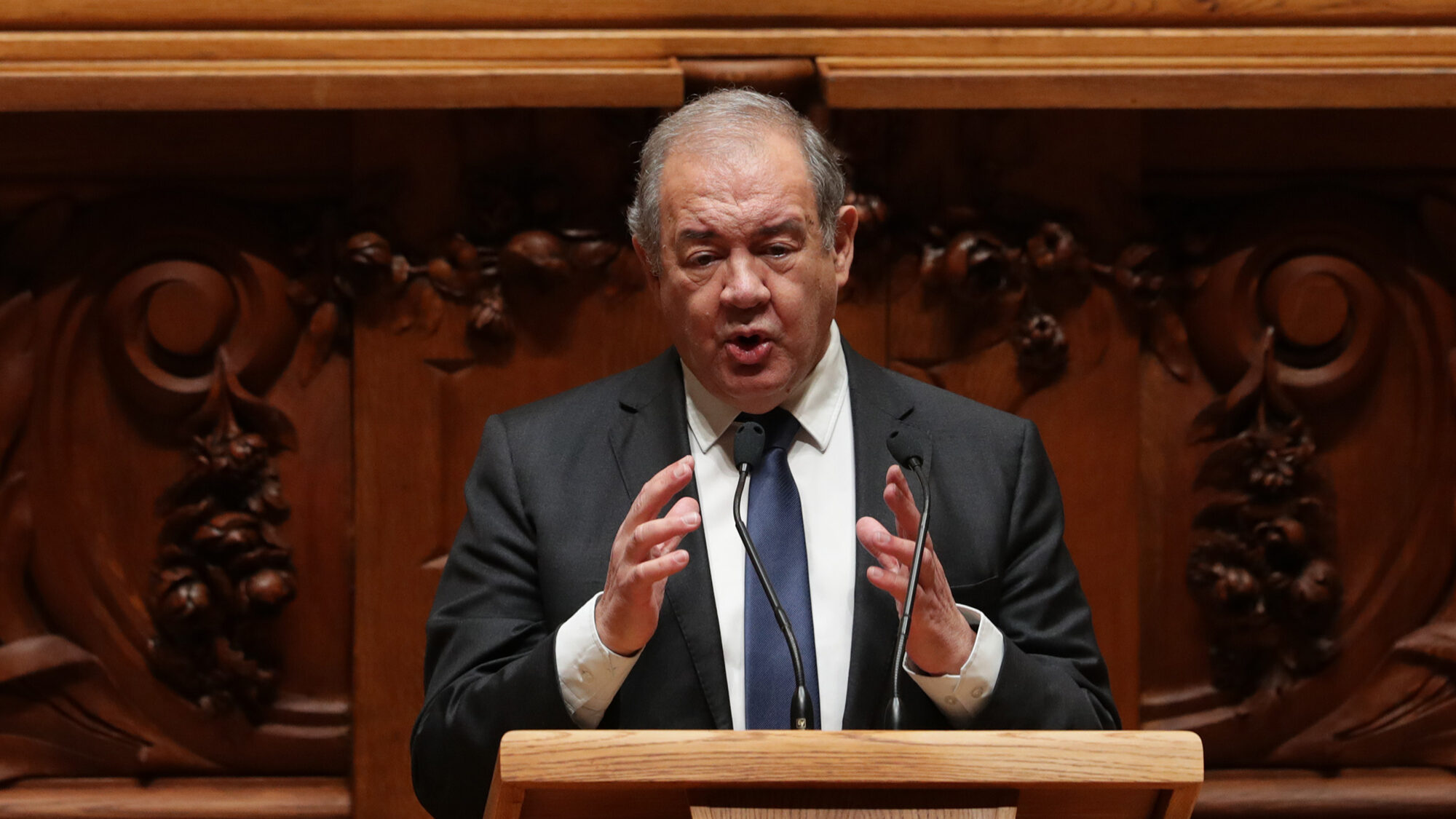New securities regulator stresses need to avoid overlaps in action
Portugal's Securities Markets Commission (CMVM) stressed the importance of avoiding or if possible eliminating overlaps in the actions of different regulators.
The new president of Portugal’s Securities Markets Commission (CMVM), Luís Laginha de Sousa, speaking a few days after the government approved his appointment, stressed the importance of avoiding or if possible eliminating overlaps in the actions of different regulators.
“It is important to avoid overlaps of action and, if they exist, to eliminate them, but we must, above all, eliminate areas of emptiness in areas where this void runs the risk of being filled by activities that could pose a risk to the proper functioning of the supervised financial system,” said Laginha de Sousa at a ceremony at the Ministry of Finance in Lisbon to present the new members of the boards of directors of the CMVM and of the Insurance and Pension Funds Supervisory Authority (ASF).
According to the new CMVM president, the actions of the supervisor should be to maintain and reinforce the orientation of priorities on two axes: external, focussing on the development and good functioning of the market, and internal, focussing on the operational efficiency of the CMVM itself.
“The actions to be undertaken on these two axes should be implemented in a way that does not compromise the CMVM’s independence, but that also benefits from the very positive [things] that can result from the adequate involvement of all stakeholders,” stressed Laginha de Sousa, whose appointment was approved by the cabinet last Thursday.
The new CMVM president, who succeeds Gabriel Bernardino, noted an “increasingly active” restriction of resources internally, and cited three priorities for the internal axis: deepening and perfecting risk identification models, developing human and technological capacity, and customising action in matters that are the CMVM’s direct responsibility.
Even so, he said, the tighter financial situation “is not a rupture, but a reaffirmation and concentration of efforts.”
Along with Laginha de Sousa, Maria Inês Drumond (as vice-president), Juliano Ferreira and Teresa Gil were also presented as CMVM’s board members.
The ceremony also saw the presentation of the new members of the ASF: Diogo Alarcão and Adelaide Marques Cavaleiro.
In her own speech, the president of ASF, Margarida Corrêa de Aguiar, argued out that a risk-based management culture “is a decisive factor for the positive response of both sectors to the crisis, as well as the timely, surgical, coordinated and proportional intervention” of the authority.
The ASF’s recent performance, she said, “allows us to face with confidence the role of insurance and pension funds in the ongoing challenges” arising from high inflation and the uncertainty caused by the war in Ukraine.”
The minister of finance, Fernando Medina, noted that with these appointments, as of Thursday and “for the first time in many years, the three national financial regulators will now work with full boards of directors” – something he said was “a priority” of the ministry he leads.
Medina challenged the ASF to “accompany and implement the revision of the regulatory framework of the insurance regime” underway at European level, which he said “will allow the insurance sector to take a more active role in financing companies” and ensure stability in the event of significant financial difficulties.”
In the case of the CMVM, the minister warned of global trends to diversification of investment and funding sources.
“In Portugal, as in many other economies, the number of issuers in securities, especially shares, has seen a negative trend, and the financing structure of our companies remains largely dependent on short-term instruments, mainly in the form of bank loans,” he stressed.
The minister reiterated that the Socialist government is preparing a set of tax measures for the capital market and savings.
“The government will soon present a set of more concrete fiscal measures that will support the development capital market and long-term savings in Portugal,” he said.


